UCI-OC Poll
AUGUST 8, 2025



AUGUST 8, 2025


It has now been two years since the official end of the COVID-19 pandemic During that time, many employers pivoted to remote or hybrid work schedules benefits that employees reportedly sought. Simultaneously, Artificial Intelligence has taken off in the business world. Work looks different today than it did only recently, and the rate of change seems to be increasing.
How are workers feeling about these changes, and what job conditions do they most seek? The questions are important not only for worker productivity but also for retaining them. What are the risks that employees are going to vote with their feet and leave jobs that do not adapt to their needs or preferences? Orange County’s business climate remains strong, so it’s especially important to maintain momentum.

With so much in flux, the UCI-OC Poll recently surveyed Orange County adults about their attitudes about the economy, their work environment, and the rise and use of Artificial Intelligence. The findings are instructive for leaders in business and government alike.
Consistent with survey findings over the last two years, large majorities (60%) of residents feel the nation and state are headed in the wrong direction, whereas a plurality (44%) believe Orange County is on the right track. There is a significant partisan difference Republicans are much more likely than Democrats to rate national conditions positively, whereas Democrats see California faring better than do Republicans
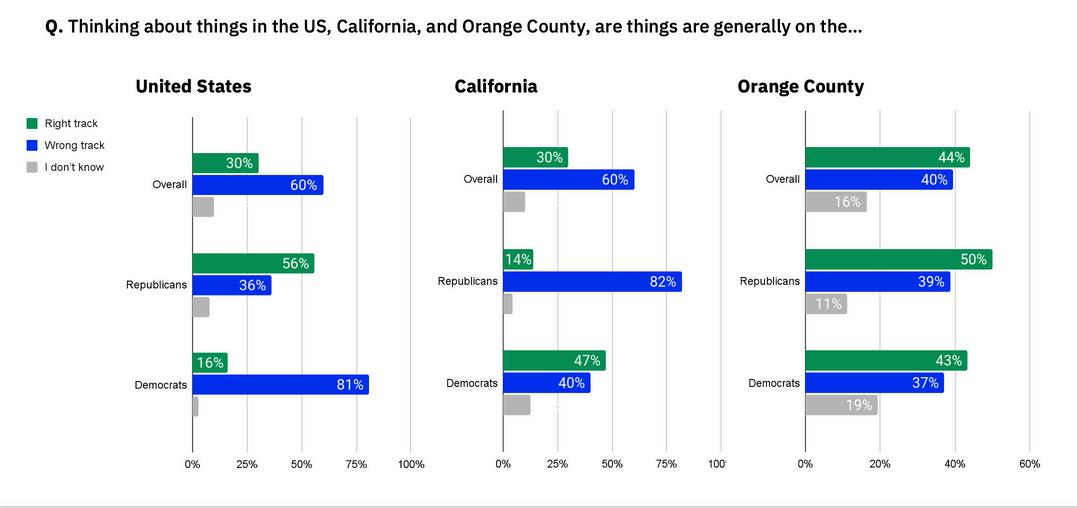
Orange County residents split evenly in describing their own economics: 48 percent say their personal economic situation is good or excellent, whereas 48% call it not so good or poor. These results are in marked contrast to residents’ assessment of the nation’s economy. Nearly three-quarters (72%) of respondents say the nation’s economy is not so good or poor, while just 27% call it good or excellent.
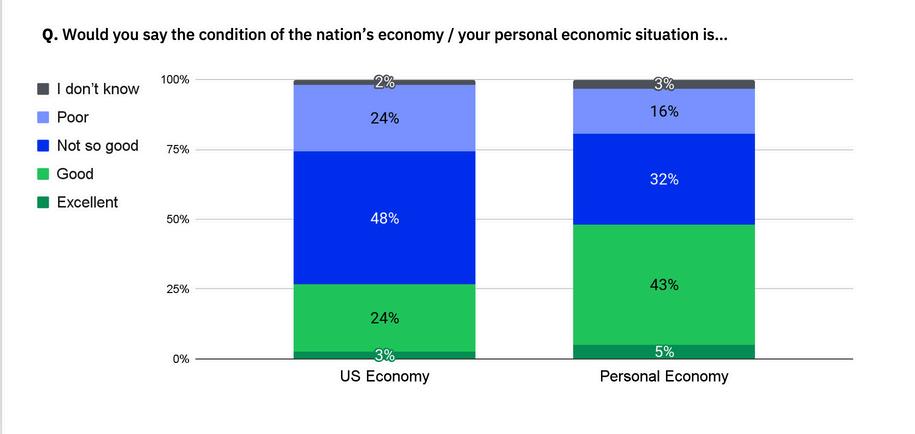

Two-thirds of Orange County adults report having a job, the work split almost equally between hourly (45%) and salaried (40%) positions. The largest industries for employment are retail, health care, education, and construction. Seventy percent of working adults work 35 hours or more per week, although about half (54%) of salaried employees work over 40 hours a week
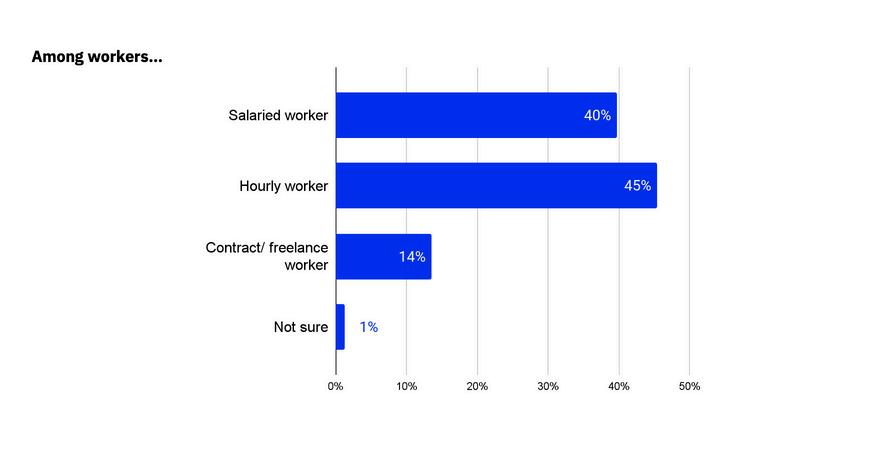
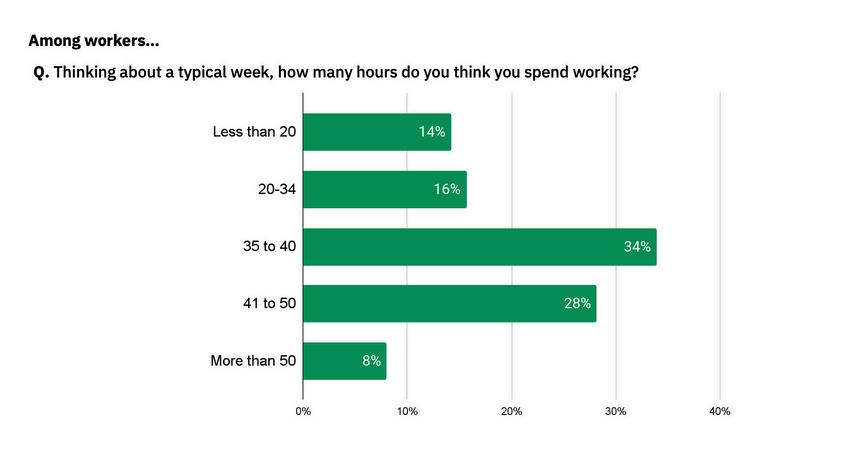
Nearly three-quarters (74%) of Orange County workers are satisfied with their work. Differences arise based on age and income, but even so, no fewer than 64% of workers are satisfied with their jobs.
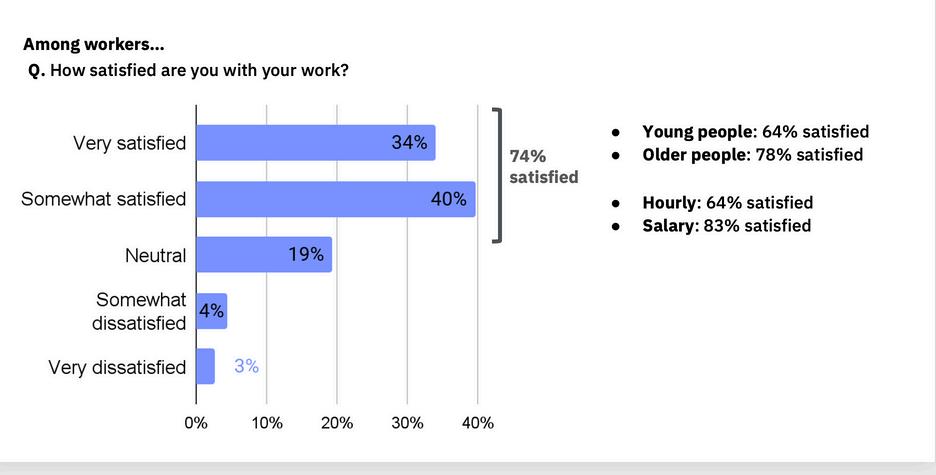


By more than 2:1, Orange County workers say they are fairly compensated That said, there are significant differences based on income and age The young and poorer workers are least likely to believe their compensation is fair.
Even if many residents believe they are fairly compensated, a large majority (61%) would accept more work for additional pay. Younger and poorer workers are the likeliest to welcome the additional time and compensation.
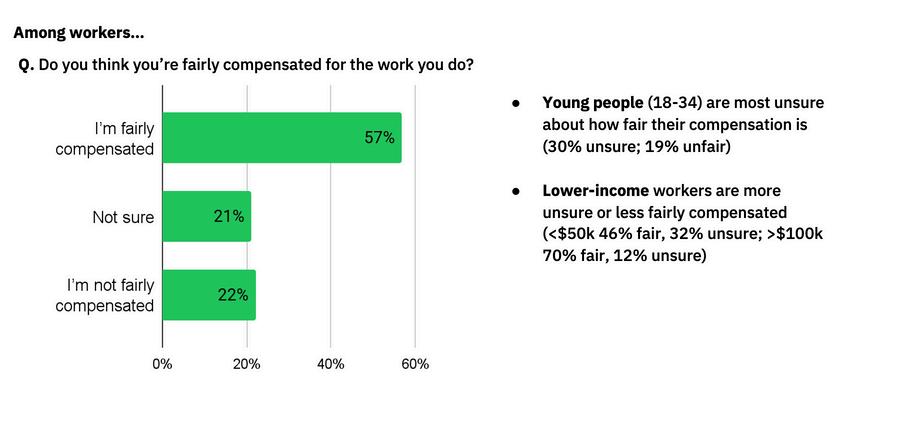
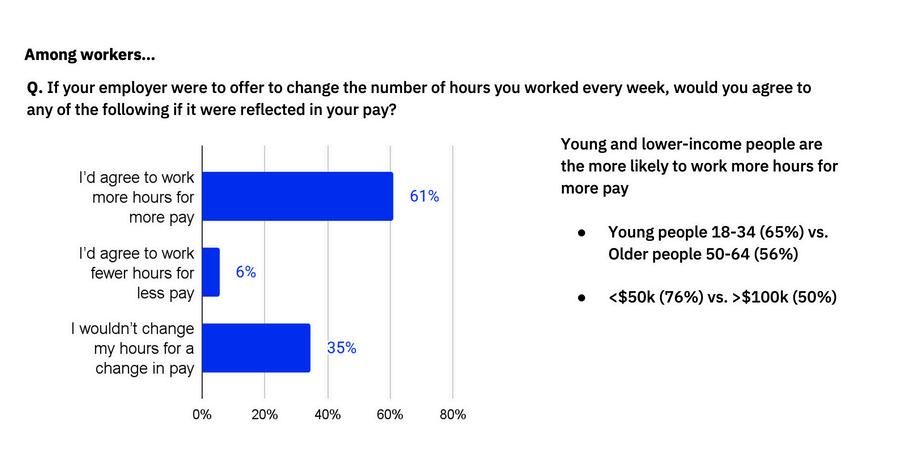
Half of employees are comfortable in their job and are not looking for new work Although about a third of workers are open to a new job, fewer than one in five employees is actively seeking a different job Younger and hourly workers are the likeliest to be searching for a new job.
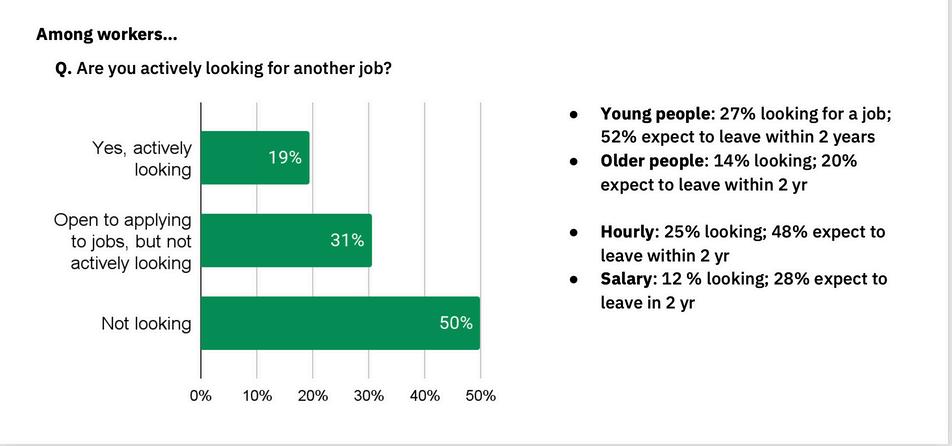

Most (63%) people work fully in-person, although there are significant differences based on income Whereas half of those earning $100,000/year or more work in person, upwards of three-quarters of employees earning $50,000 to $99,999/year do so. Half of employees say they work from home the same amount of time or less than before the pandemic, with only 20% reporting that they work from home more often.
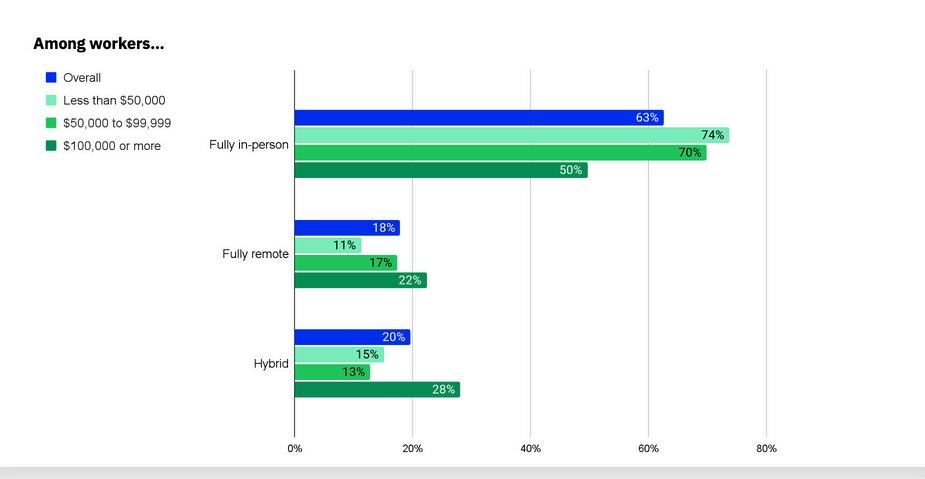
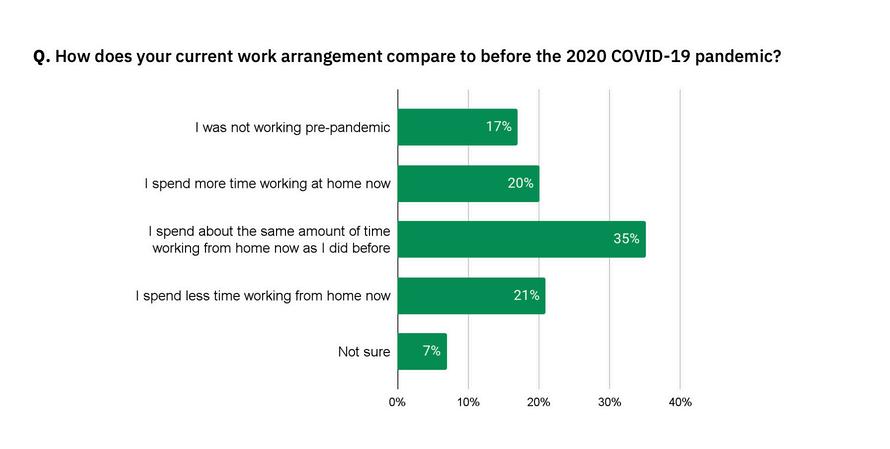
Given the choice, a majority (52%) of workers desire a hybrid work schedule most or all the time, and another quarter would like to do so some of the time However, nearly half (47%) of workers say their job responsibilities cannot be done from home
Workers praise work-from-home as providing greater flexibility and additional leisure time while improving their productivity. Pluralities say they can maintain their motivation and remain in communication with co-workers. Almost half (45%) report feeling more isolated from remote work, compared to 36% who disagree.
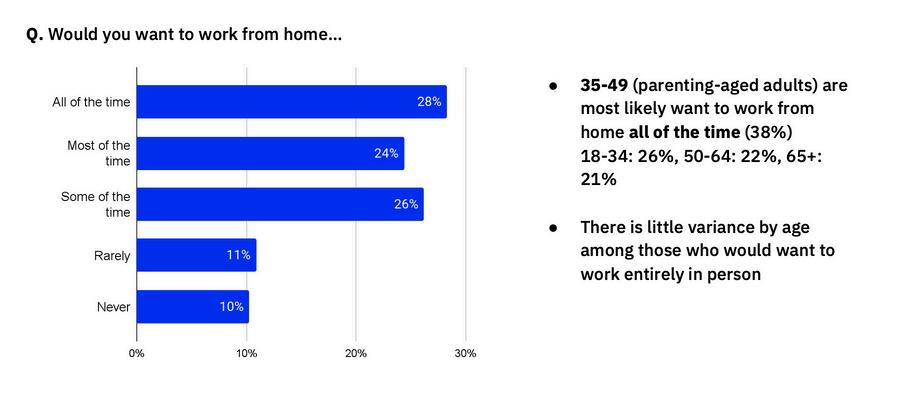

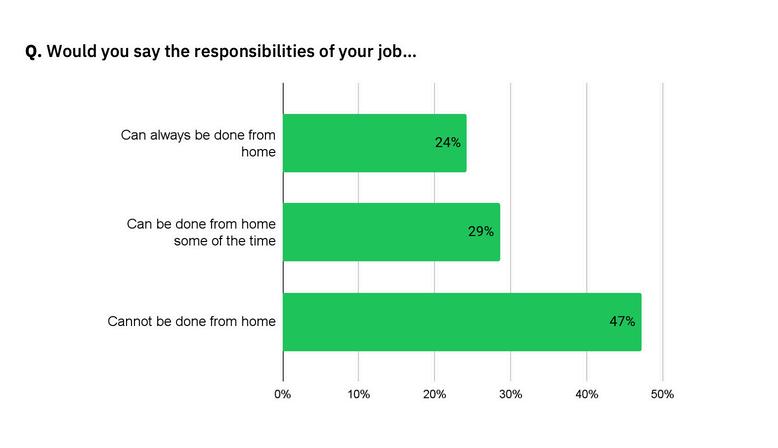
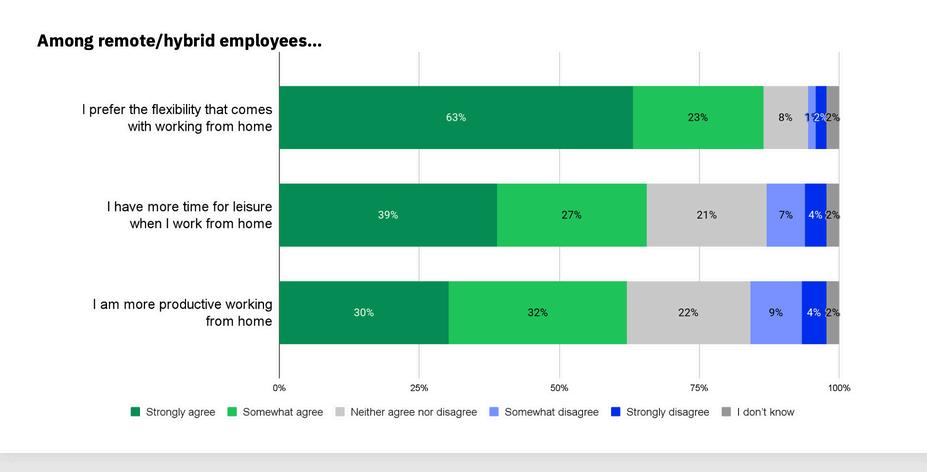
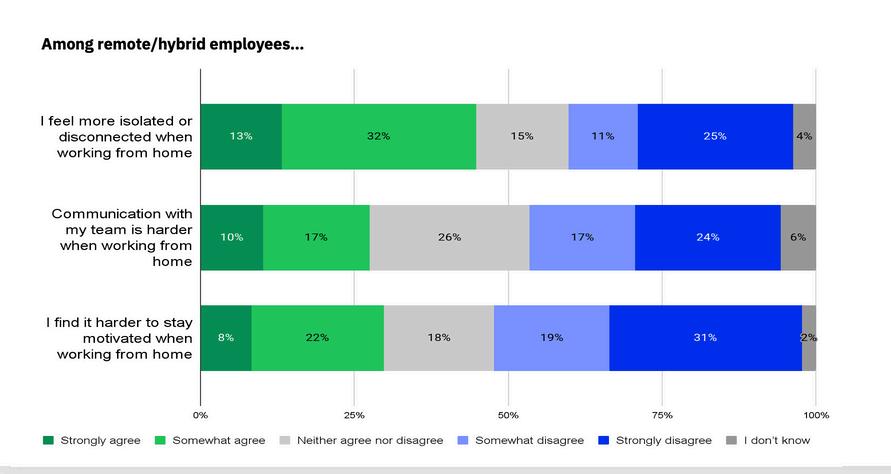
If their employer asked them to work in the office more often, more than half of employees would be unhappy, but only 9% would immediately seek a new job. However, the prospect of remote work is enticing to many workers. Forty-one percent of those who work in-person or hybrid would leave Orange County if they got a remote job.
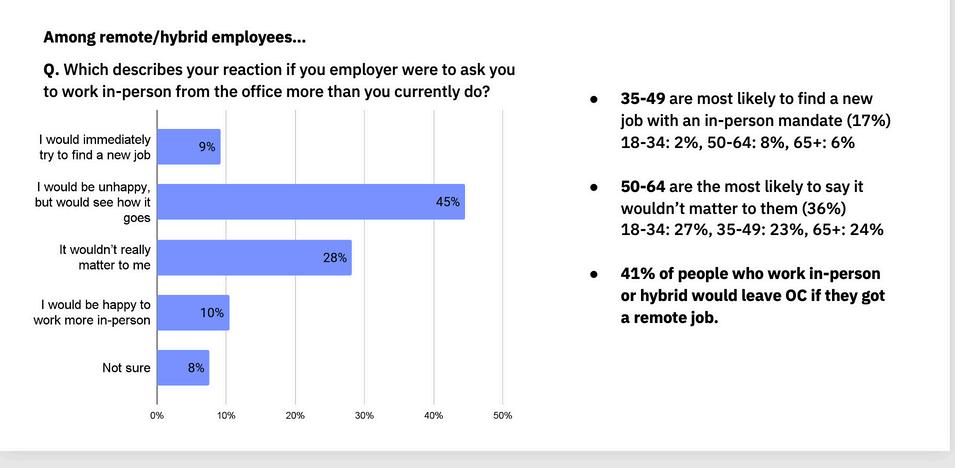


Most people are only passingly aware of AI and say they are somewhat positive or neutral about its development. Ironically, both the youngest (18-34) and oldest (65+) residents are most skeptical about AI.
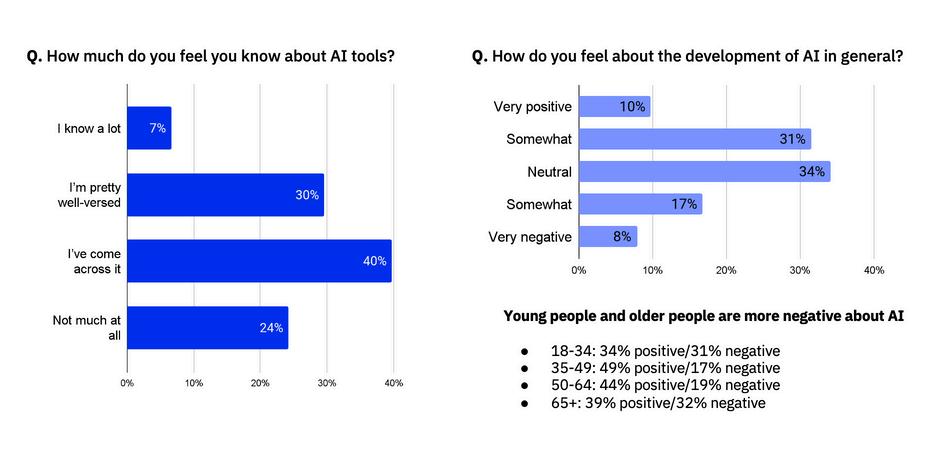


A majority (58%) of workers say their employers have encouraged them to use AI, with more workers than not saying the technology is helpful
Even when employers do not encourage the use of AI, many (32%) workers report using and valuing AI Overall, 71% of workers find AI helpful, with 57% saying it makes them more productive.
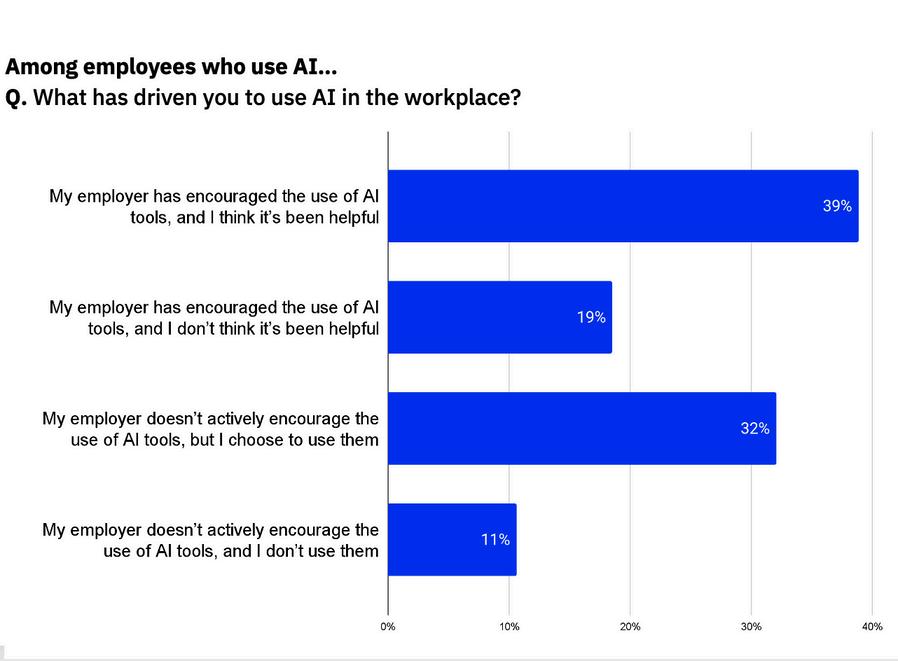
More than half (56%) of OC residents believe that AI will lead to fewer jobs. There are significant demographic differences in these results Democrats, hourly workers, lower-income employees, and those without a college degree are more likely to think AI will lead to fewer jobs These concerns extend to the need for regulation Seventy percent of residents believe that AI needs more regulation Only 4% say it needs less regulation.



Survey fielded June 20 - July 1, 2025 in concert with TrueDot
N = 800 adults in Orange County
The study was comprised of a sample from an online, nonprobability panel provided by Dynata Research
Data were weighted to Census targets for age, race/ethnicity (combined), gender, educational attainment, region of California and calibrated to results of 2024 presidential election
Modeled Standard Error (MSE) of +/- 4.1%